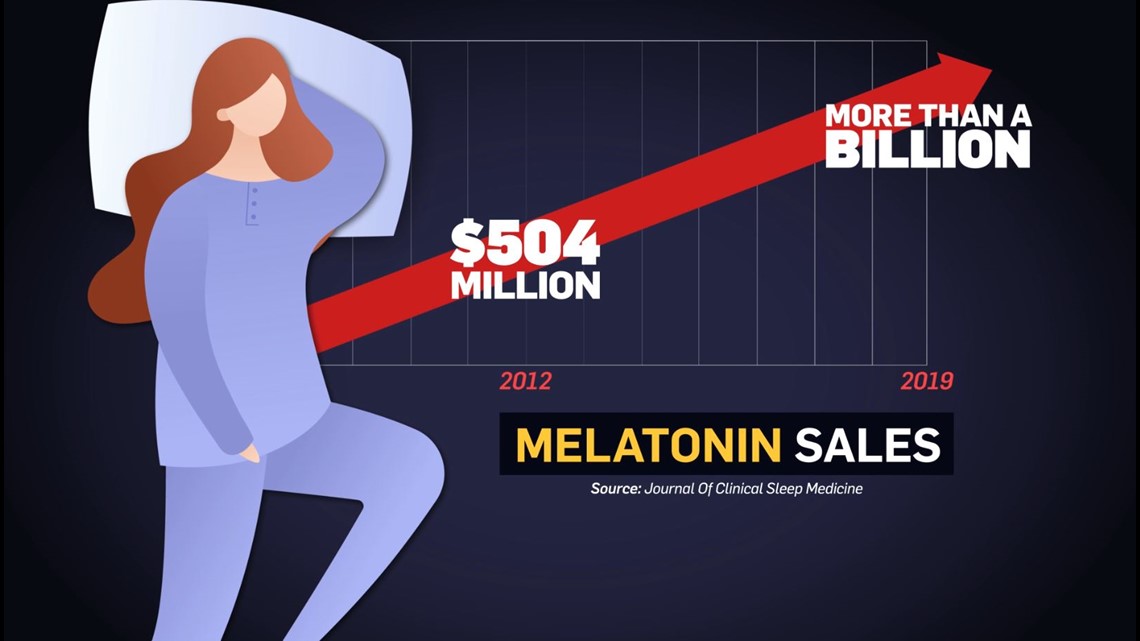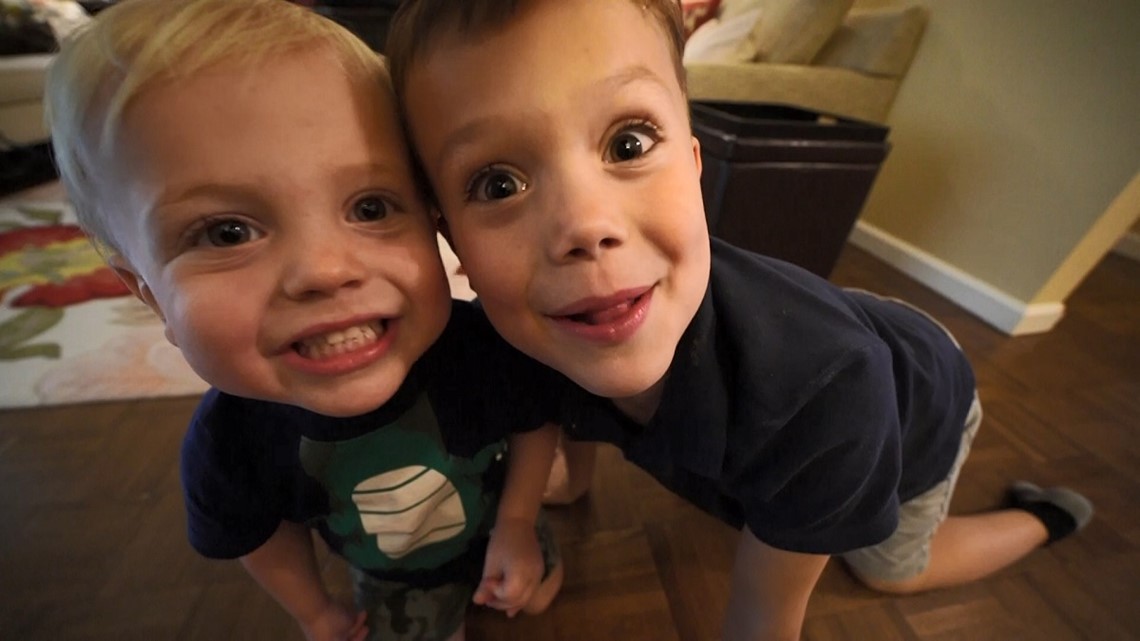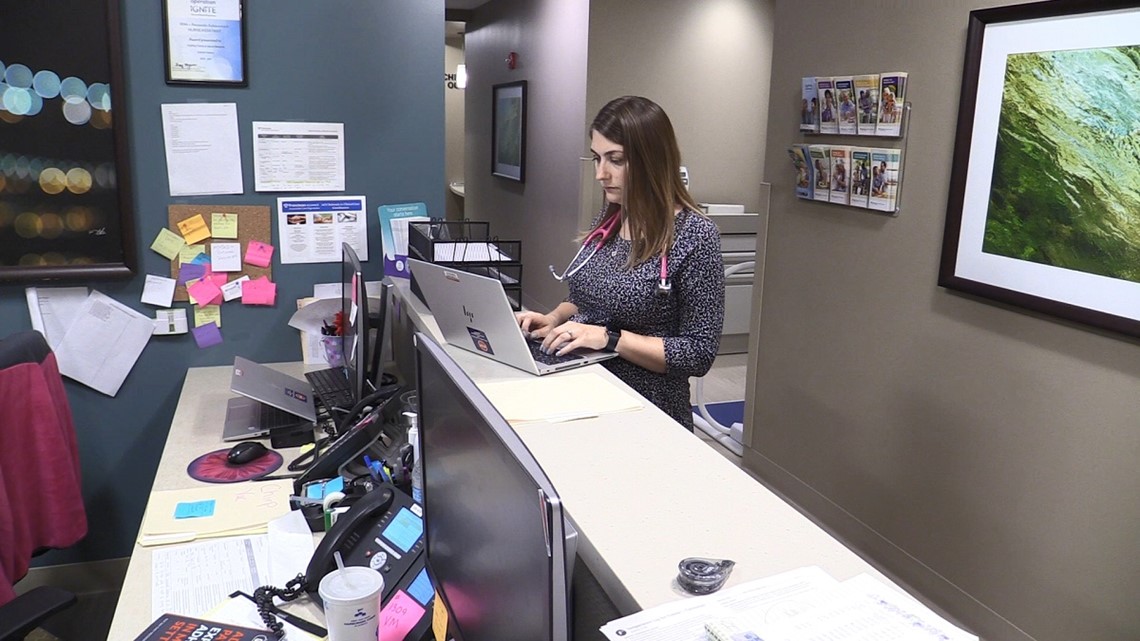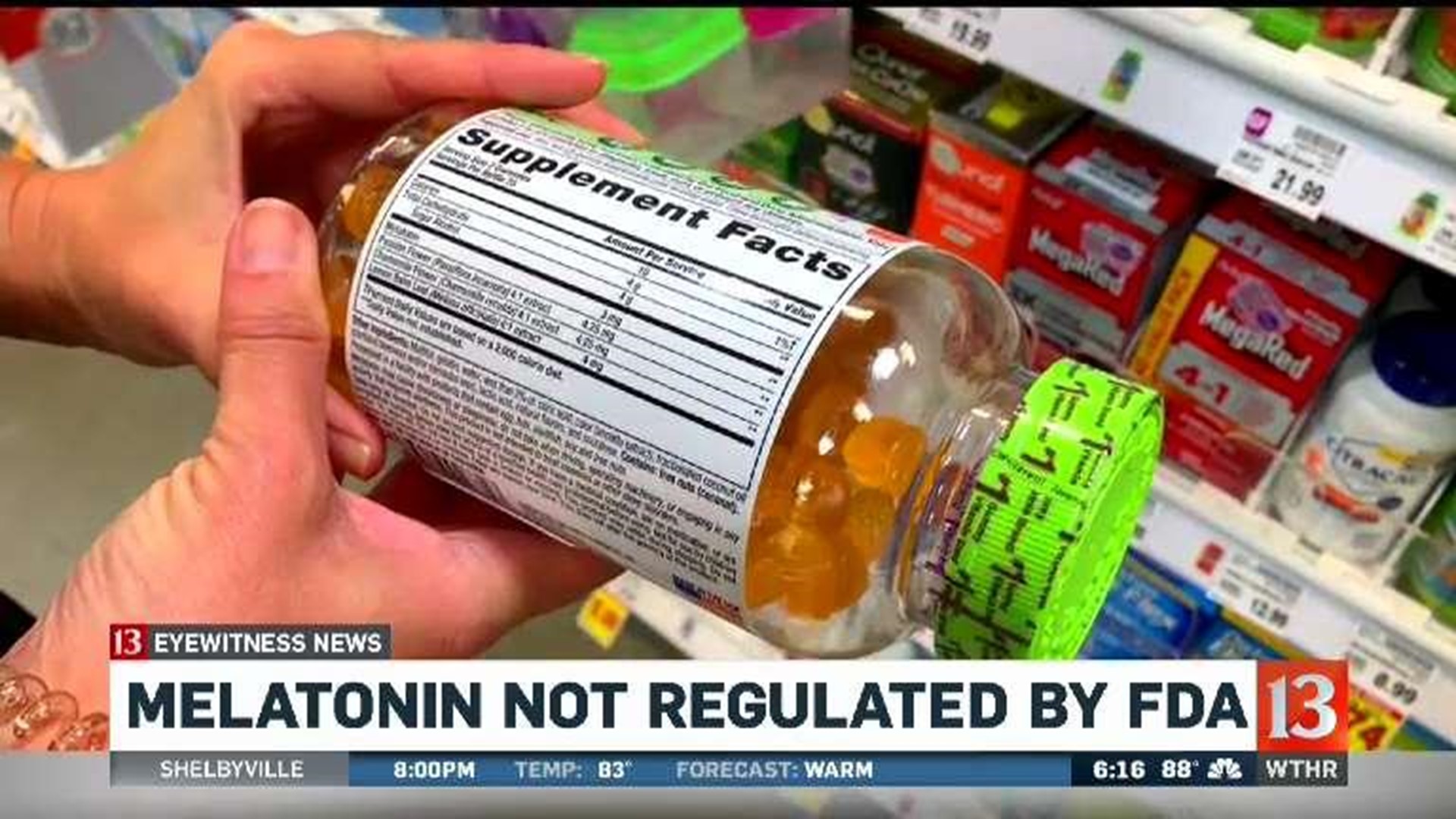INDIANAPOLIS (WTHR) — With the stress of school and work, and the attraction to smartphones and video games, falling asleep and staying asleep can be hard for both adults and children.
Increasingly, people are turning to melatonin to to help them through bouts of insomnia. It's one of the most popular supplements, and sales have nearly quadrupled in the last decade.
It's a "natural" supplement — our bodies naturally create the hormone — which makes it attractive to adults with children. Still, it is a supplement, which means it's not regulated by the Food and Drug Administration.
That leaves questions about whether it's truly safe for adults and children, and if so, how much they should be taking.
What is melatonin


Melatonin is a hormone our bodies naturally make to regulate our circadian rhythm — helping us fall asleep and wake up again. Melatonin supplements — sold over the counter and at any drug store — are becoming wildly popular.
Sales have nearly quadrupled in the last decade. Between 2007 and 2012, its use more than doubled.
This year, sales are expected to double again, to more than $1 billion.
People desperate for rest are popping the pills — or gummies or liquid drops — like candy.
Eyewitness News talked to a central Indiana family who uses melatonin, and a doctor who is generally OK with its use, but has some recommendations.
Growing use with families
Life with George and Henry Shultz is full-throttle, full-spirited, nonstop energy.


"It's wild," mom Kristi Howard-Shultz said. "You feel like you can barely get them settled before it's time."
Days with a 2 and 6-year-old are never dull, and trying to get them to wind down every night is a tough task.
That daily struggle is why Kristi uses white noise, blackout curtains and essential oils to help her family fall asleep. For the past few years, she's also added melatonin into the mix.
"Since then, it's been pretty helpful," she said. "I don't find that it helps them stay asleep, but I think it helps you fall asleep when you're out of sorts."
Advice from a doctor
Dr. Kristin Willfond is a physician with Franciscan Health. She said she frequently deals with patients who have insomnia and estimates a patient tells her they take melatonin every week.
"I'm generally OK with people trying it. I do give them an end time, though," Willfond said. "I say, 'Hey, I don't want you using this more than a few months, maybe six months at the most.'"
There are, however, some populations that should especially take time to consider before turning to the supplement: children, pregnant women, and people who are breastfeeding.
"I would definitely recommend talking to your doctor first because we don't have much data for those populations."
Willfond also has guidelines on the dosage.
Any given drug store may have melatonin in 1, 5 and even 10 milligram options. Because there is no FDA regulation, dosing is all over the place.


"There's no regulation on dosing. There's not a certain brand that's better than another brand," Willfond said. "It's kind of confusing."
Willfond recommends adults take only 1 or a half a milligram per night about 90 minutes before bed. And while you may reach for the 10 milligram pills to give you the extra rest, Willfond cautioned against taking that much.
"Because we don't have research on it, I can't say that's bad. But at the same time, that's giving you a much larger quantity of melatonin in your system than you would ever make naturally."
If you feel like you need that high of a dosage, Willfond said it's probably not the right supplement.
Willfond said there could be other issues like a thyroid disorder, mood disorder or anxiety that are causing trouble sleeping.
Another tip is to look for brands that have been third-party tested by ConsumerLab, NSF International or United States Pharmacopeia (USP). If they've been tested, they'll have a sticker on the label signifying it.


Safe for kids?
First things first: It's important to know melatonin has not been studied long term in children. That said, limited use should be safe.
"I would definitely recommend talking to your doctor first because we don't have much data for those populations," Willfond said. "For some kids who have some neuro-cognitive disorders, things like ADHD or other issues, I have seen it recommended. For kids in general, again lowest dose possible, under the guidance of your doctor and for short term."
Kristi Howard-Shultz did that for her children. They take half a milligram when their routine gets disrupted.
Bedtime tips
Before turning to melatonin to help you fall asleep, there are some things you should check for to help your sleep patterns.
First, caffeine, nicotine and alcohol use could be playing a bigger role than you think.
"I have lots and lots of patients who don't think it's crazy that they drink an entire pot of coffee throughout the day," Willfond said.
When it's bedtime, make sure you have all the tools for a good night's rest:
- Comfortable mattress that's not too old
- Comfortable pillows
- Blackout curtains
- Eye mask
- White noise
- Fan on in the background
- Lower the temperature
Willfond suggests keeping your bedroom between 60 and 67 degrees while you sleep.
There are other practices that can contribute to successful sleep:
- Exercise during the day and not right before bed
- Limit liquids at night
- Limit food late at night
- Have a healthy diet, especially if you suffer from acid reflux
- Limit screen time before bed
Willfond said there a belief that bright light while lying in bed can suppress your natural melatonin.
"It's a lot of stuff that we all know, but it's hard to put into practice."

